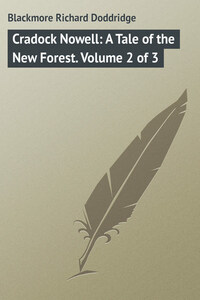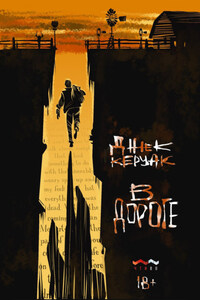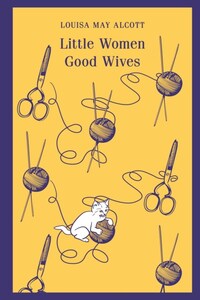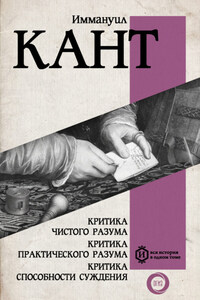Within the New Forest, and not far from its western boundary, as defined by the second perambulation of the good King Edward the First, stands the old mansion of the Nowells, the Hall of Nowelhurst. Not content with mere exemption from all feudal service, their estate claims privileges, both by grant and custom. The benefit of Morefall trees in six walks of the forest, the right of digging marl, and turbary illimitable, common of pannage, and license of drawing akermast, pastime even of hawking over some parts of the Crown land, – all these will be catalogued as claims quite indefeasible, if the old estates come to the hammer, through the events that form my story. With many of these privileges the Royal Commissioners will deal in a spirit of scant courtesy, when the Nowell influence is lost in the neighbouring boroughs; but as yet these claims have not been treated like those of some poor commoners.
“Pooh, pooh, my man, donʼt be preposterous: you know, as well as I do, these gipsy freedoms were only allowed to balance the harm the deer did”.
And if the rights of that ancient family are ever called in question, some there are which will require a special Act to abolish them. For Charles the Second, of merry memory (saddened somewhat of late years), espied among the maids of honour an uncommonly pretty girl, whose name was Frances Nowell. He suddenly remembered, what had hitherto quite escaped him, how old Sir Cradock Nowell – beautiful Fannyʼs father – had saved him from a pike–thrust during Cromwellʼs “crowning mercy”. In gratitude, of course, for this, he began to pay most warm attentions to the Hampshire maiden. He propitiated that ancient knight with the only boon he craved – craved hitherto all in vain – a plenary grant of easements in the neighbourhood of his home. Soon as the charter had received the royal seal and signature, the old gentleman briskly thrust it away in the folds of his velvet mantle. Then taking the same view of gratitude which his liege and master took, home he went without delay to secure his privileges. When the king heard of his departure, without any kissing of hands, he was in no wise disconcerted; it was the very thing he had intended. But when he heard that lovely Fanny was gone in the same old rickety coach, even ere he began to whisper, and with no leave of the queen, His Majesty swore his utmost for nearly half an hour. Then having spent his fury, he laughed at the “sell”, as he would have called it if the slang had been invented, and turned his royal attention to another of his wifeʼs young maidens.
Nowelhurst Hall looks too respectable for any loose doings of any sort. It stands well away from the weeping of trees, like virtue shy of sentiment, and therefore has all the wealth of foliage shed, just where it pleases, around it. From a rising ground the house has sweet view of all the forest changes, and has seen three hundred springs wake in glory, and three hundred autumns waning. Spreading away from it wider, wider, slopes “the Chase”, as they call it, with great trees stretching paternal arms in the vain attempt to hold it. For two months of the twelve, when the heather is in blossom, all that chase is a glowing reach of amaranth and purple. Then it fades away to pale orange, dim olive, and a rusty brown when Christmas shudders over it; and so throughout young green and russet, till the July tint comes back again. Oftentimes in the fresh spring morning the blackcocks – “heathpoults” as they call them – lift their necks in the livening heather, swell their ruffing breasts, and crow for their rivals to come and spar with them. Below the chase the whiskers of the curling wood converge into a giant beard, tufted here and there with hues of a varying richness; but for the main of it, swelling and waving, crisping, fronding, feathering, coying, and darkening here and there, until it reach the silver mirror of the spreading sea. And the seaman, looking upwards from the war–ship bound for India, looking back at his native land, for the last of all times it may be, over brushwood waves, and billows of trees, and the long heave of the gorseland: “Now, thatʼs the sort of place”, he says, as the distant gables glisten; “the right sort of berth for our jolly old admiral, and me for his butler, please God, when weʼve licked them Crappos as ought to be”.
South–west of the house, half a mile away, and scattered along the warren, the simple village of Nowelhurst digests its own ideas. In and out the houses stand, endwise, crossways, skewified, anyhow except upside down, and some even tending that way. It looks like a game of dominoes, when the leaves of the table have opened and gape betwixt the players. Nevertheless, it is all good English; for none are bitterly poor there; in any case of illness, they have the great house to help them, not proudly, but with feeling; and, more than this, they have a parson who leads instead of driving them. There are two little shops exceedingly anxious to under–sell each other, and one mild alehouse conducted strictly upon philosophic principles. Philosophy under pressure, a caviller would call it, for the publican knows, and so do his customers, that if poachers were encouraged there, or any uproarious doings permitted (except in the week of the old and new year), down would come his license–board, like a flag hauled in at sunset.














